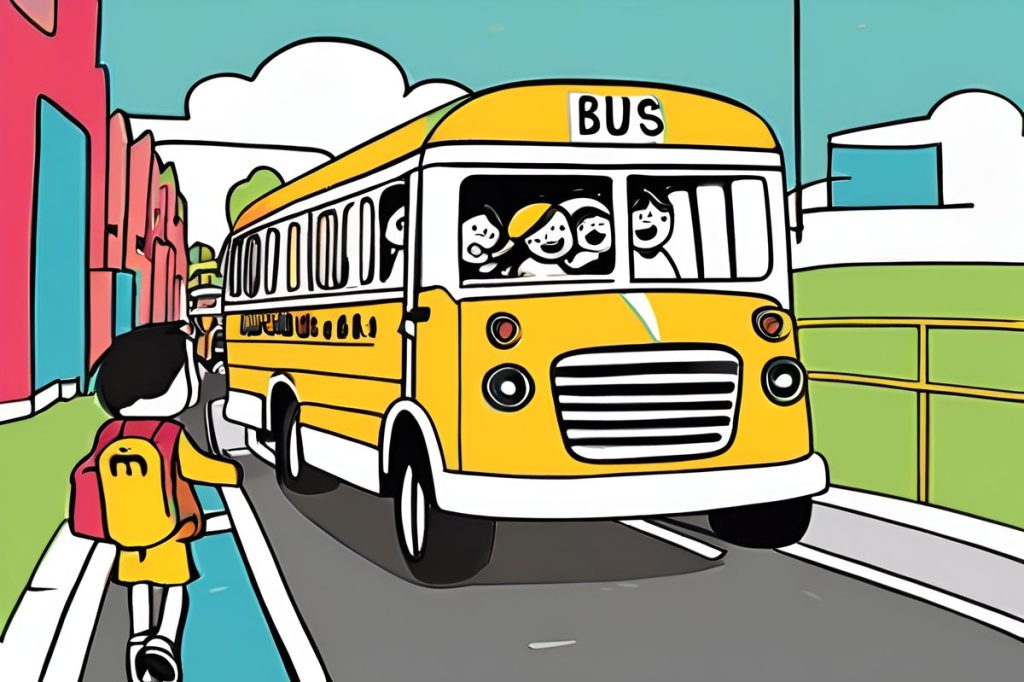The government’s fare reduction initiative, led by Transport Minister Alexis Vafeades, slashes school bus passes in Limassol and Nicosia from €200 to €30 annually and from €10 to €5 monthly, aiming to attract an extra 2,000 schoolchildren and ease traffic congestion. With an investment of €9.5 million, this initiative not only lightens families’ financial burdens but also promotes a greener, more sustainable future by reducing car usage and carbon emissions in urban areas.
What are the benefits of the government’s school bus fare reduction initiative?
The government’s school bus fare reduction initiative aims to:
- Alleviate traffic congestion by increasing school bus usage.
- Reduce the financial burden on families with schoolchildren.
- Encourage a shift towards public transport among the next generation.
- Improve urban traffic flow and contribute to environmental sustainability.
- Support education and reduce carbon emissions through a more eco-friendly commute.
A Push for Public Transport
In a strategic move to alleviate traffic congestion and promote the use of public transportation, the government has announced a significant reduction in school bus fares. The initiative, unveiled by Transport Minister Alexis Vafeades, is not just about easing parents’ financial burdens—it’s a concerted effort to make buses an attractive option for the next generation. With the implementation of this policy, the annual cost of a school bus pass is slashed from €200 to a mere €30. Likewise, the monthly fare is halved from €10 to €5.
These changes are anticipated to entice an additional 2,000 schoolchildren to choose bus travel. Currently, approximately 18,000 children use the bus network to commute to school. With the fare reduction and other encouraging measures, the government aims to increase this number to 20,000 during the academic year. This growth in young bus commuters is expected to substantially alleviate the traffic woes in urban areas.
Urban Traffic and Environmental Benefits
The impact of the fare reduction could resonate beyond the wallets of families. Minister Vafeades highlighted the potential environmental and traffic flow improvements, pointing out, “If we manage to remove 500 cars from the streets of Limassol and 500 cars from the streets of Nicosia, it will mean that these two cities, which suffer from heavy traffic, will see a notable reduction in congestion.” The transition from individual car use to public transportation could significantly decrease carbon emissions, contributing to cleaner air and a more sustainable environment for all residents.
To streamline the process, the transport ministry has introduced a personalized ‘Motion’ card for all children who wish to purchase an annual bus ticket. The previous options for three-month and six-month tickets have been phased out, simplifying the system and encouraging longer commitments to bus usage.
Supporting Education and the Environment
The fare reduction is part of a broader government initiative that includes five grants aimed at supporting schoolchildren. Aside from transportation, these grants are primarily focused on aiding families with the costs associated with purchasing supplies and equipment for the new academic year. The comprehensive package, including the bus fare reduction, reflects a government investment of €9.5 million.
The goal of these programs extends beyond mere financial aid; they signify a push towards a more eco-friendly and community-centric approach to education and urban living. As families start to see the benefits—both monetary and environmental—of switching to bus travel, it’s hoped that this will instill long-term behavior changes, leading to a more sustainable future for the cities involved.
Stepping Towards a Greener Commute
In summary, the fare reduction is a well-calculated move that promises multiple benefits. It not only aids in reducing the financial strain on families but also plays a crucial role in the government’s vision of promoting public transport as a viable and preferred option. Through this initiative, the aim is to reduce traffic congestion, enhance the quality of urban life, and move towards a more environmentally conscious society. The success of such policies will likely encourage further innovations in public transportation and urban planning.
“`markdown
What is the fare reduction for school bus passes under the initiative?
The fare reduction initiative slashes the annual cost of a school bus pass from €200 to €30 and lowers the monthly fare from €10 to €5. This significant reduction is designed to make school bus travel more affordable and appealing for families.
How many additional schoolchildren are expected to use the school bus after this fare reduction?
The government aims to attract an additional 2,000 schoolchildren, increasing the total number of young bus commuters from approximately 18,000 to 20,000. This increase is expected to help alleviate traffic congestion in urban areas.
What are the environmental benefits associated with this initiative?
By encouraging more children to use school buses instead of personal vehicles, the initiative aims to reduce car usage and carbon emissions in Limassol and Nicosia. The goal is to remove 500 cars from the streets of each city, leading to improved air quality and a more sustainable urban environment.
What other support is included in the government initiative alongside the fare reduction?
In addition to the fare reduction, the government has introduced a package of five grants to support families with the costs of school supplies and equipment for the new academic year. This comprehensive approach reflects an investment of €9.5 million and aims to ease financial burdens while promoting a more eco-friendly and community-focused education system.
“`

